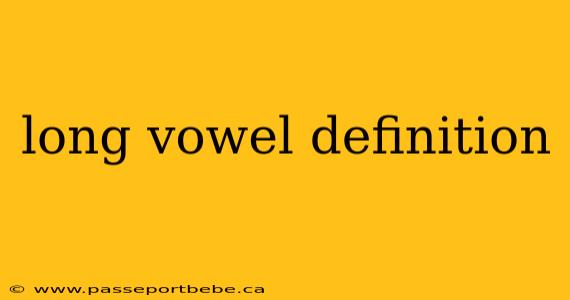Long vowels are an essential aspect of phonetics and phonology in the English language. They are crucial for proper pronunciation and meaning in words. Understanding long vowels can significantly enhance reading and speaking skills.
What is a Long Vowel?
A long vowel is a vowel sound that is pronounced for a longer duration than a short vowel. In English, the long vowel sounds correspond to the names of the vowels themselves: A, E, I, O, U. When pronounced, these vowels often sound similar to their alphabetic counterparts.
Examples of Long Vowels
- A as in "cake"
- E as in "beet"
- I as in "bike"
- O as in "bone"
- U as in "mule"
How Long Vowels are Represented
Long vowels can be represented in several ways:
- Silent 'e': Adding an 'e' at the end of a word can make the preceding vowel long (e.g., "rate," "like").
- Vowel Digraphs: Two vowels together can create a long vowel sound (e.g., "boat," "team").
- Open Syllables: A vowel at the end of a syllable is often long (e.g., "go," "he").
Importance of Long Vowels
Understanding long vowels is vital for various reasons:
- Pronunciation: Correctly pronouncing long vowels can enhance communication and reduce misunderstandings.
- Reading Skills: Recognizing long vowels helps in decoding words, which is essential for developing reading fluency.
- Spelling: Knowing the rules for long vowels aids in spelling words correctly.
Conclusion
In summary, long vowels play a significant role in the English language. They not only help in proper pronunciation but also contribute to reading and writing skills. By understanding and practicing long vowels, learners can improve their overall language proficiency.
